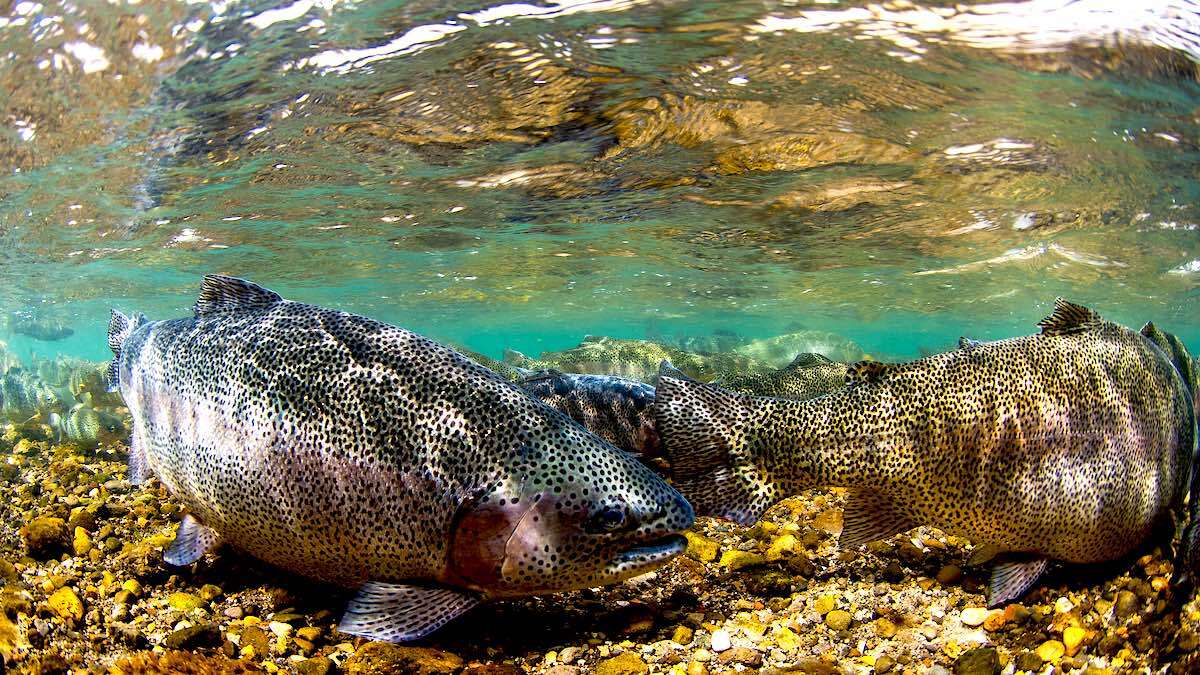The EPA Wants Your Input on Permanently Protecting Bristol Bay

On May 25, the Environmental Protection Agency released a plan that would effectively prohibit the development of the controversial Pebble Mine in Alaska’s Bristol Bay region. The proposed determination, under force of the 1972 Clean Water Act, would bar the Canadian mining conglomerate seeking to build the mine from using certain waterways for disposal of dredged materials associated with their planned extraction of gold, copper, molybdenum, and other elements from the wild landscape. The public now has until July 5 to submit comments on the plan by written word or at public hearings.
Conservation groups, hunters, anglers, commercial fishermen, and area tribes cheered the announcement as a major step forward in protecting this intact ecosystem and the world’s most prolific salmon runs it produces. Steve Kurian is a hunter, fly fisherman, gillnet captain, and co-owner of a direct-to-consumer wild salmon distributor, Pride of Bristol Bay.
“Bristol Bay is the keystone piece for showing the world that we need to protect these last wild places that can harbor such amazing fisheries,” Kurian told MeatEater. “We've got the technology to manage it, and we just need the government body to protect it and keep it protected forever. If we give up Bristol Bay, in my opinion, then like everything is off the table. There's no limit to what we could destroy for that economic value.”
Indeed, Pebble Mine proponents offer astronomical figures around the value of the minerals they hope to extract—north of $400 billion by some estimates. But very little of that would flow toward American communities, given the lack of royalties paid on mining. Foreign investors would gain most of the profit from the open pit mine. Certainly many jobs would be created to build and operate the massive infrastructure in the wilderness, but likely at the cost of many existing ones in the recreation and commercial fishing sector. The most recent economic analysis in 2019 suggested that the commercial salmon fishery alone creates 15,000 sustainable jobs and a $2 billion economic impact. But those numbers strike poorly at the intangible value of healthy salmon runs and abundant wildlife that have sustained Native tribes in the area for thousands and thousands of years.
United Tribes of Bristol Bay Executive Director Alannah Hurley expressed gratitude for the advancing protections for her people’s way of life.
“As stewards of these lands and waters since time immemorial, our people welcome this step towards permanent protections for our waters and way of life,” Hurley said in a press release. “Today’s announcement by the EPA is a good start in this effort. It’s clear the science supports the need for our region’s headwaters to be protected from a mine like Pebble’s impacts, at the site and downstream. We appreciate EPA’s efforts to address the threat Pebble poses to our lands, waters and way of life in Bristol Bay, and hope to see the agency finalize strong protections this year.”
Alaskans, Native and otherwise, have continued to close ranks against the threat of an open pit mine situated between the headwaters of two of their most productive rivers. Both Presidents Trump and Biden have spoken out against the mine, as have public figures as divergent as Rachel Maddow and Tucker Carlson. In 2020, top-level executives at the Pebble Partnership were secretively caught on tape bragging about their paid political influence and admitting that they’d lied to the public and government agencies about the size and scope of their mining plans.
“As all the pieces came out about Pebble and the CEO and what their plans were, I think now more than ever there's more people behind stopping Pebble, and there's less people that want mineral development or don't care what happens to the area,” Kurian said. “Being in the fight for as long as I have, to me it's just really important for the public to see that the government is willing to stand behind protection.”
If the EPA’s proposed determination under section 404(c) of the Clean Water Act is finalized following the current public comment period, it would ban the dredge or discharge of mining and development waste in the South Fork Koktuli, North Fork Koktuli, and Upper Talarik Creek drainages—not affecting mineral projects anywhere else in Alaska.
“The Proposed Determination issued by EPA’s Region 10 evaluates an extensive record of scientific and technical information that spans nearly two decades,” the federal agency said in their press release. “The Proposed Determination finds that the discharge of dredged or fill material associated with mining the Pebble Deposit could result in unacceptable adverse effects on salmon fishery areas in certain waters within the Bristol Bay watershed. One example of an adverse impact is the permanent loss of 8.5 miles of streams would result in fish displacement, injury, and death. The Proposed Determination takes into consideration information that has become available since the Agency’s 2014 proposal—including new scientific analyses and the Pebble Limited Partnership’s 2020 Mine Plan.”
This controversy has ground on for so long that many viewers wonder if resolution may ever be attainable, if this sword hanging above the moose, sockeye, brown bear, and native leopard-spotted rainbow trout will ever descend. The finalization of this Clean Water Act veto would provide a sturdy shield against the blade. But an act of Congress is needed to bring it down altogether. You can express your thoughts about the vitality of Bristol Bay directly to the EPA here or through this portal. And if you truly care that rugged wilderness landscapes and wild salmon runs brimming the riverbanks persist into the future, tell your friends and representatives. There is nowhere else quite like Bristol Bay remaining on Earth.





